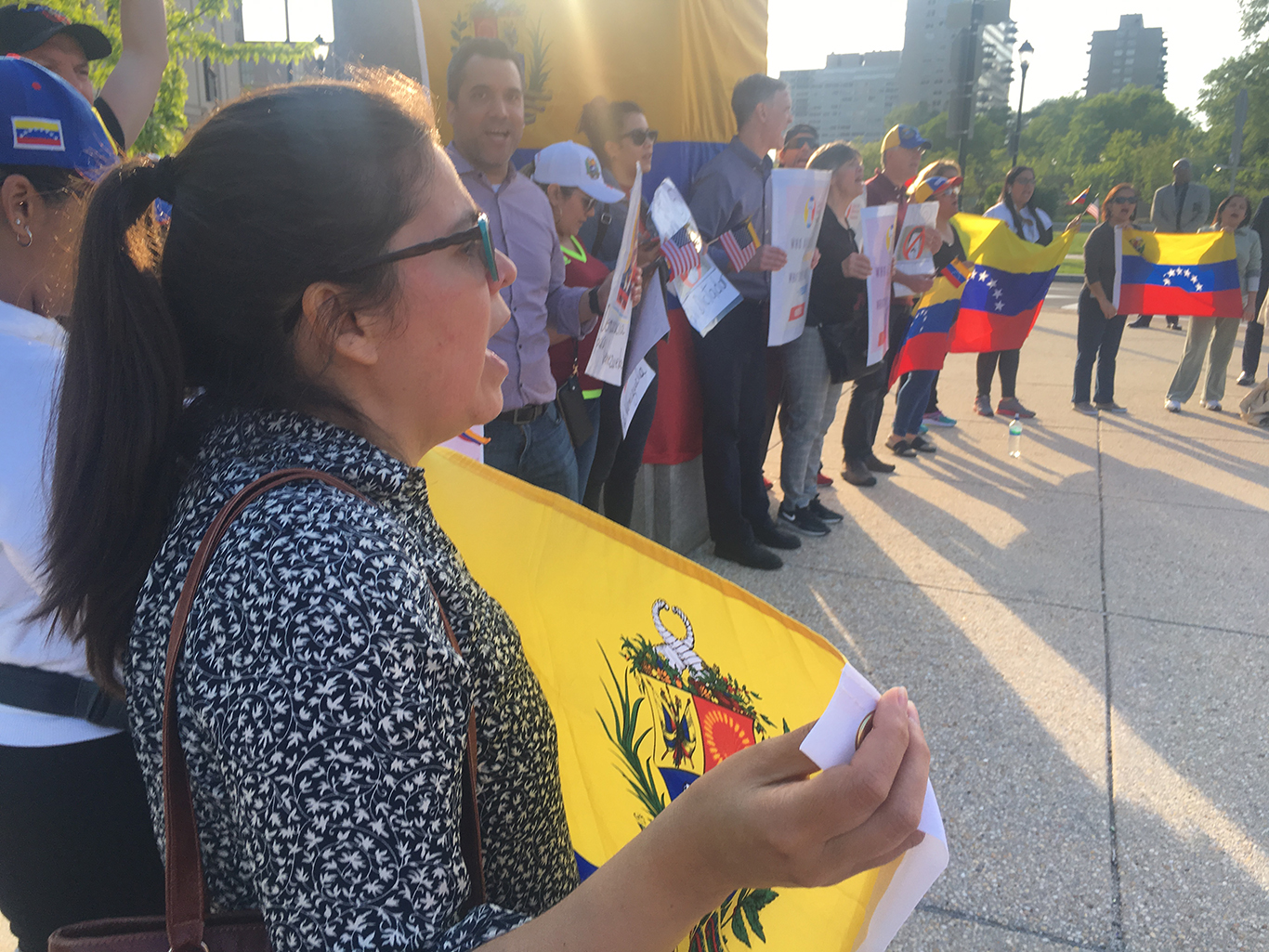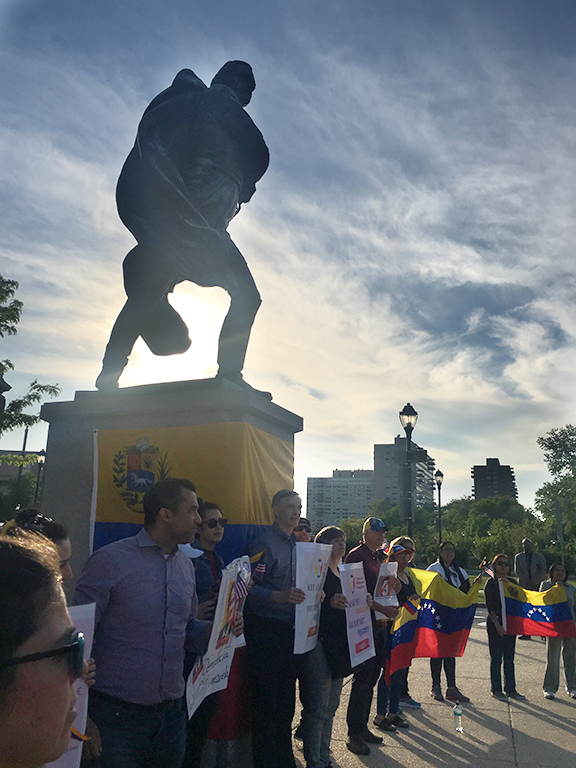
A group of over 100 Venezuelans protested in Center City Philadelphia against the government of Nicolas Maduro on the afternoons of April 30 and May 1. The protest was motivated by opposition leader Juan Guaido’s call in the morning of April 30 after he was joined with military officers to liberate Leopoldo Lopez, an opposition politician who was arrested in 2014, and to overthrow Maduro’s government.
The group, reunited by a statue of the Venezuelan founding father Francisco De Miranda at on Benjamin Franklin Parkway, included people holding several flags and posters saying “Democracy for Venezuela,” “Guaido, the World is With You” and “Maduro Dictator,” while signing the country’s national anthem.
The protest in favor of Guaido, which is part of what the opposition calls “The Operation Freedom,” was organized by Casa de Venezuela Philadelphia y Casa de Venezuela Delaware, both of which are groups of the Venezuelan community in the Greater Philadelphia and Delaware Valley regions, respectively.
“The interim president Juan Guaido called everyone to the streets as demonstration to begin the process of freedom and it was supposed to be on May 1, but this morning, when we woke up at 6 a.m., we saw the videos of Juan Guaido and Leopoldo Lopez in La Carlota, which is a military airport, and we were called on duty, that’s why we are here. We are excited, but we are also really nervous because we don’t know what’s gonna happen,” said Rossana Arteaga-Lopenza, the director of Casa de Venezuela Delaware.
These protests were held worldwide, due to the fact that around 3.4 million Venezuelans have emigrated from their country. Venezuela currently has one of the biggest refugee crises in the continent, according to data by the United Nations High Commissioner for Refugees. Washington D.C., New York, Boston, Madrid, Bogota, Buenos Aires, London and Berlin are some other cities where these protests were held in solidarity with Venezuela. This emigration crisis is caused by the country’s high crime rate along with the extreme scarcity of food and medicines, and the over 1,000,000 percent hyperinflation that has been growing exponentially, according to a report by the International Monetary Fund. According to the Office of Admissions, the Venezuelan undergraduate population at Drexel is comprised of around 30 students.
At the time the protests were held, Maduro did not make any official declarations. However, Diosdado Cabello, the vice-president of the government’s party, made a declaration from the presidential palace saying that the military forces were controlled and there were not any irregular situations May 1. While he was making these declarations, the government-controlled-militias, colloquially named “colectivos,” went to La Carlota and had a clash with the group of militaries that were backing Guaido while civilians were protesting.

In these two days of protest, 4 people were killed and 178 people were injured — 15 of whom were minors, according to UNICEF; 168 people were arrested — 13 of whom were minors, according to the NGO Foro Penal.
During Maduro’s administration, two other big protest periods have occurred. The first one was in 2014 after the arrest of Lopez and it lasted almost four months. The second protest period was in 2017 and lasted five months after the Supreme Court, which is composed by Maduro’s party allies, dismissed the democratically elected National Assembly that had opposition majority. Additionally, as a result of the protests in both years, hundreds of Venezuelans were killed by repression of the military forces and thousands were arrested.
Despite this, in May 2017 Maduro was elected for a second presidential term in elections that were held six months before the established constitutional period when all the major opposition leaders were banned by the government to postulate in political positions and when the international community classified the election as illegal.
The participation rate in this election was of 46.02 percent, according to the Venezuelan National Electoral Council, being the elections with the lowest participation in the nation. This is the main reason why, at the beginning of this year, when Maduro was sworn for his second presidential period, the National Assembly did not recognize him and established Guaido as the country’s interim president. Ever since, Guaido has being recognized as the legitimate president of the country by the Organization of American States and over 50 countries, including the US, Colombia, Canada and Spain.
Guaido announced this is going to be the beginning of escalated protests until they are able to make a general labor strike. More actions from the opposition are expected to happen in Venezuela in the following days.
